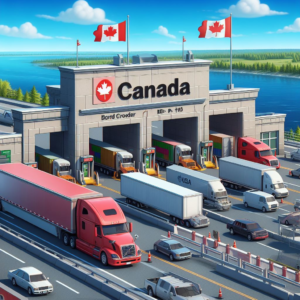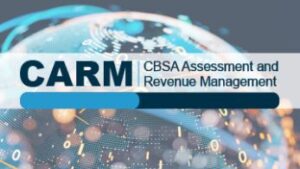Maska International Customs Broker has some exciting news to share: CBSA launches CARM internally

Dear Trade Chain Partners,
Maska International Customs Broker is thrilled to announce a significant milestone in the evolution of trade operations in Canada. In today’s email, the Canada Border Services Agency (CBSA) announced that it has officially launched the CBSA Assessment and Revenue Management (CARM) system internally. This marks a pivotal step towards CARM becoming the official system of record that importers and other trade chain partners will rely on for years to come.
We extend our deepest gratitude to all our esteemed industry partners who have been integral to the success of this project from its inception. Your unwavering dedication and collaborative efforts have been instrumental in reaching this momentous occasion. With over 81,000 clients already registered on the CARM Client Portal and substantial progress in testing and certifying Electronic Data Interchange (EDI) and Application Program Interface (API) participants, together, we have achieved remarkable milestones.
While many of you were prepared for the May 13th implementation, the CBSA’s decision to delay the external launch until October 2024 was made to address concerns regarding potential labor disruptions and to ensure adequate support for a successful external launch. CBSA employees are the backbone of the Agency, and their availability is critical to supporting both each other and all trade chain partners during the external launch of CARM.
Furthermore, the link between CARM and the Canada Revenue Agency necessitates aligning with the next scheduled window for a major IT change, which is in October 2024.
As the implementation of CARM continues to evolve, so too will the engagement between the Agency and all trade chain partners. We view this transitional period leading up to the external launch in October as an opportunity for renewed focus and collaboration.
Maska International Customs Broker is dedicated to revitalizing the way we engage with you, with forward-looking objectives, and will be reaching out in the coming weeks to discuss next steps. Our focus during this period will include providing consultation, clarity and direction on key topics such as Release Prior to Payment (RPP), written security agreements, transitional measures regarding the use of the business number (BN), and contingency planning. Additionally, CBSA’s efforts to raise awareness and onboard more small to medium businesses onto CARM will continue unabated. Please check the full list of our services and get in touch with us if you need any clarification or a full scale consultation.
Lastly, we draw your attention to Customs Notice 24-18, which outlines interim processes such as obtaining an importer/exporter (RM) number. This notice provides comprehensive guidance on navigating interim measures effectively during this period of change.
Maska International Customs Broker’s team sincerely thanks you for your collaboration and engagement over the years, and we eagerly anticipate working with you towards a successful external launch of CARM in October 2024.
Warm regards,
[Maska International]
[Anton]


